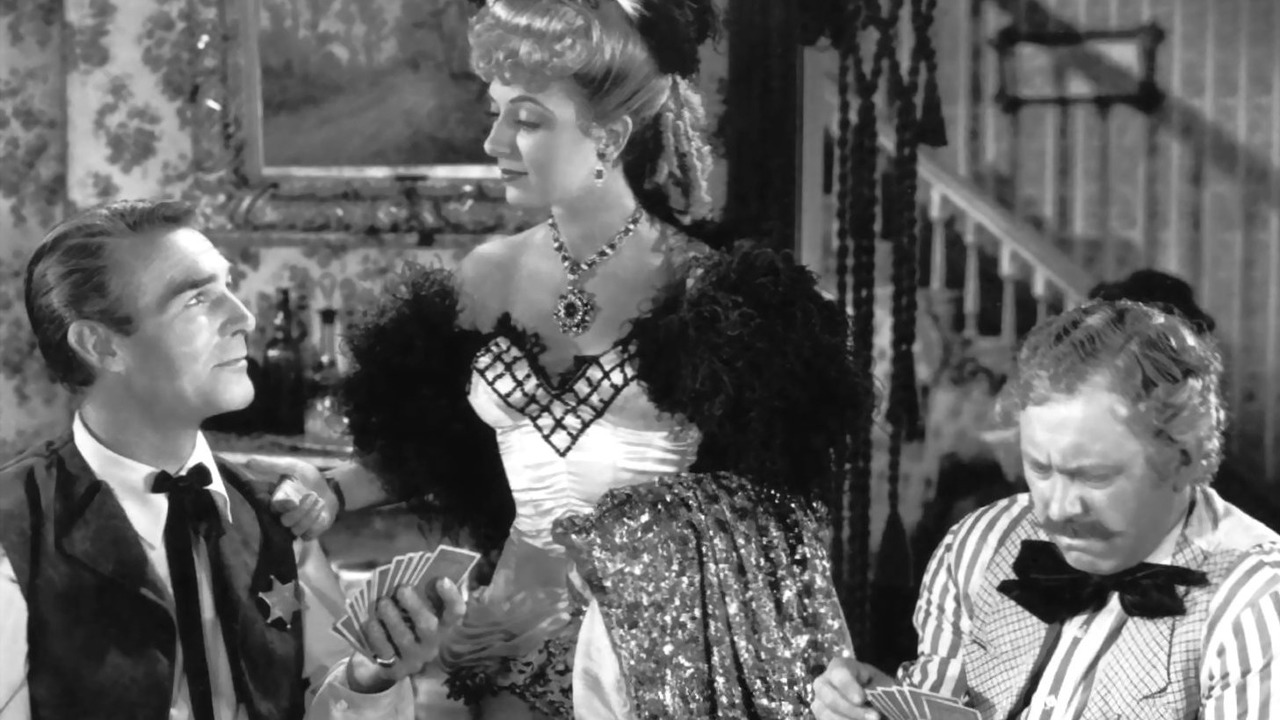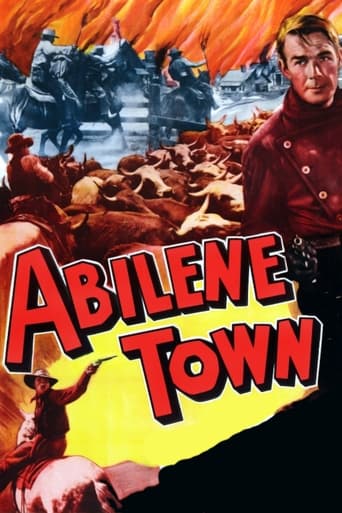

Uncompromising town Marshall Randolph Scott attempts to get to the bottom of a terror campaign against peaceful homesteaders who've settled on government land used by cattlemen in the plains around Abiline, Kansas.Scott gives an appropriately stern performance in this low-budget independent production, but this just isn't as good as his color studio westerns he made in the following decade.The script is intelligent but a bit too talky, failing to ignite any real fireworks until near the end.Cowardly Sheriff Edger Buchanan and Lloyd Bridges as a heroic farmer give adequate support, but villainous Jack Lambert is a real standout.Ann Dvorak's incredibly leggy costumes are a real treat.
... View Morethis western/musical/comedy is not one of the best of the genre i have seen.i found it much too slow.it just plodded along to the inevitable end.i also found it disjointed.i couldn't wait for it to be over.Randolph Scott is the headliner here,and Lloyd Bridges also stars.but for my money money Edgar Buchanan is the best of the bunch.Buchanan appeared in many westerns in his day,many times providing comic relief,as he does in this picture.i also liked Ann Dvorak as Rita.otherwise,though,i can't think of much to recommend this movie.the movie is based on a novel by Ernest Haycock,who also wrote the novel Stagecoach,which was mad into a movie of the same name in 1939,and remade in 1966 and again in 1986.The 1939 version of Stagecoach,is in my mind,one of the best movies ever made.anyway.as for Abilene town,my vote is a 3/10
... View MoreA righteous sheriff finds himself in the pinch when there is hostility against homesteaders. He urges his fellow villagers to choose sides and to help him end the conflict.Decent old-school western. Every cliché is there: from the fierce shootouts to the merry can-can dancers; from the stubborn but righteous sheriff to the crooks stirring up things in town. It's not as harsh as we're used to since Sergio Leone and Sam Peckinah and the boundary between right and wrong is pretty clear from the start. But I liked it as a fan of the western. It's not a classic in any way, but still a decent flick to see if you like the genre.
... View MoreAbilene, Kansas is at a critical watershed moment in its history and only town marshal Randolph Scott seems to realize it. That is Scott and a bunch of homesteaders led by Lloyd Bridges. They're the future of the place if they settle there permanently and grow their crops. The homesteader has it over the cowboy. He's raising families for the future, not cain at the end of the trail drive.In a trend that seemed to start with Destry Rides Again in westerns, Scott has two girls after him in this film. Saloon singer Ann Dvorak and storekeeper's daughter Rhonda Fleming. You figure out who the marshal winds up with.Abilene Town doesn't lack for anything any western fan could hope for. Lots of gunplay and fist fights and the triangular conflict of cattlemen, townspeople, and homesteaders. And it has a scene stealing performance by Edgar Buchanan as the county sheriff who becomes a hero in spite of his less than honorable ways.At the time that Abilene Town came out, Abilene, Kansas had one of the most famous people in the world calling it his home town. I don't know how they did it because Howard Hughes didn't own RKO yet, but for the premier of the film in Abilene, Kansas, General Dwight D. Eisenhower showed up himself with Randolph Scott and some of the rest of the cast. A red letter day in the history of RKO studios. To be fair Ike never missed an opportunity to be a booster for the place he grew up in. Hey if the architect of D-Day gave his seal of approval to this film, how could any of you go wrong in seeing it?
... View More